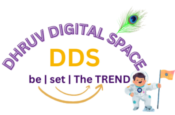
1. Learn SEO essentials
It’s important to keep the basics strong at the start. Start reading Google from SEO Starter Direct and start reading for free in the central documentation. Usually, the assets compiled by Google are blown to clarify special perspectives such as slithering, ordering, and positioning features.
Get a sequence of opportunities to make the website appear in appearance. See some keywords, metadata, articles and some experts. If you have this pattern information when using advanced methods for victory, you can use it for victory.

2. Get to know key SEO tools
Using the right SEO tools is important to create blog content that closes your search engine. From keyword research to optimizing content and performance tracking, tools like Google Keyword Planner, Ahrefs, Semrush, and Ubersust can help you identify valuable keywords and analyze your competitors. Platforms like Yoast SEO and Surfer SEO support on-page content optimization, while Google Search Console and Screaming Frosch provide insight into site performance and technical issues. Whether you’re a beginner or an experienced blogger, these tools can optimize your SEO strategy and improve your blog visibility.

3. Keep growing and practicing your SEO skills.
The SEO domain continues to develop. Therefore, it is important to continue to develop and put your skills into practice. Consistently check SEO as a travel, not as a goal. Efforts to learn new techniques, stay in the algorithmic changes, experiment with a variety of strategies. The more you practice and refine your skills, the better your website visibility and attract organic traffic.

4. Develop a portfolio of projects to showcase your SEO work.
Development of a project portfolio is important to demonstrate your SEO knowledge. The portfolio should highlight a lot of work, including website auditing, keyword research, page and off-page optimization, content strategy, traffic growth, rank improvements, performance metrics such as conversion rates. The involvement of data, case studies, and client testimonials can add credibility and highlight its SEO capabilities. A well-organized and visually appealing portfolio not only builds trust, but also positions itself as a knowledgeable and results-oriented expert in the field of digital marketing.
5. Optimize your own website to develop your SEO skills.
Optimizing your own website is one of the best ways to develop and improve your SEO skills. Deliver real-time experience with real-time results and experiment with a variety of strategies, including keyword targeting, content optimization, technical SEO, and link structure. Pursuing performance using tools like Google Analytics and Search Console allows you to understand what works and what doesn’t, and continually improve your approach. This practical knowledge not only creates trust, but also serves as a proven example of skill when presenting SEO expertise.

